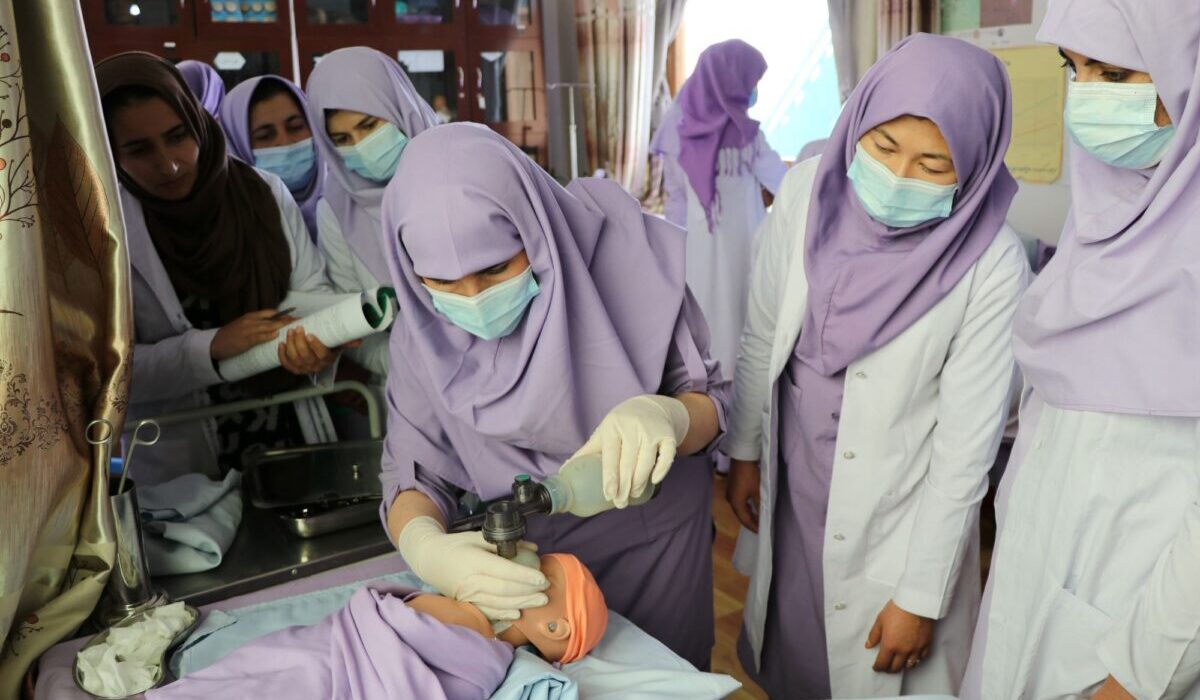Taliban ban women from health professions, promote traditional medicine
Although excluded from universities, Afghan women and girls could enrol in vocational schools. Now, without midwives and nurses, access to care for women becomes very complicated. When the ban was announced, the Taliban Minister of Health was in Beijing for a WHO-sponsored conference on traditional medicine.
Kabul (AsiaNews) – The Taliban have imposed a new ban on Afghan women. Already barred from university, they are now excluded from health studies. Meanwhile, the Ministry of Health plans to set up a department to integrate traditional medical practices after an international conference held in Beijing.
The ban was announced on Monday and applies to all public and private institutions in Afghanistan. From now on, women are not allowed to take 18 subjects, including nursing, midwifery, dentistry, anaesthesia, etc.
The decision was not made by the Ministry of Health. Taliban officials summoned dozens of managers at the start of the week, and simply told them to carry out the order of Taliban leader Hibatullah Akhundzada.
In the past two years, female students with a high school diploma flocked to professional schools after they were barred from university, some 35,000 students in total, local sources report.
But one manager quoted by AFP wonders, “What are we supposed to do with just 10 per cent of our students?”
The decision creates a huge gap in the health sector, especially in nursing and midwifery, already struggling because of major staffing problems.
Since the Taliban took over, men are not allowed to treat women, who can only be visited by a woman. Afghan girls who go to school can only study until the age of 12.
Women are banned from all jobs that require contact with the public, and cannot travel alone or be in open spaces with men. They cannot even speak too loudly.
For international observers, the situation is one of “gender apartheid”. Even a Pakistan-based Pashtun organisation criticised it. Most Taliban are ethnic Pashtun.
The Taliban's decision will aggravate an already precarious situation. According to the World Health Organisation (WHO), Afghanistan has one of the highest maternal mortality rates in the world, with 620 deaths per 100,000 live births.
Polio cases are also on the rise; 17 new cases were reported from July to early November, an increase of 238 per cent over 2023, WHO reported.
Health experts warn that, as a result of policy changes, the current vaccination campaign is unable to reach children, “especially those of younger age and girls.”
While health workers, especially women, went house to house until mid-2024, now families are being asked to bring their children to a clinic, a major complication since mothers, although the main caregivers for infants, cannot move or come into contact with men outside their family.
When the ban was announced, the Taliban Minister of Health, Mawlawi Noor Jalal Jalali, was in Beijing until yesterday for the WHO-sponsored World Conference on Traditional Medicine; in the Chinese capital, he also visited the Chinese Centre for Disease Control and Prevention and the National Influenza Centre.
At the conference, he called for closer bilateral cooperation between China and Afghanistan, as well as integration of traditional medicine into health practices already in place. To this end, his ministry just set up a department for traditional medicine, tasked with formulating guidelines to regulate the sector.
22/12/2022 11:31
15/01/2009
11/01/2023 17:15







.png)










